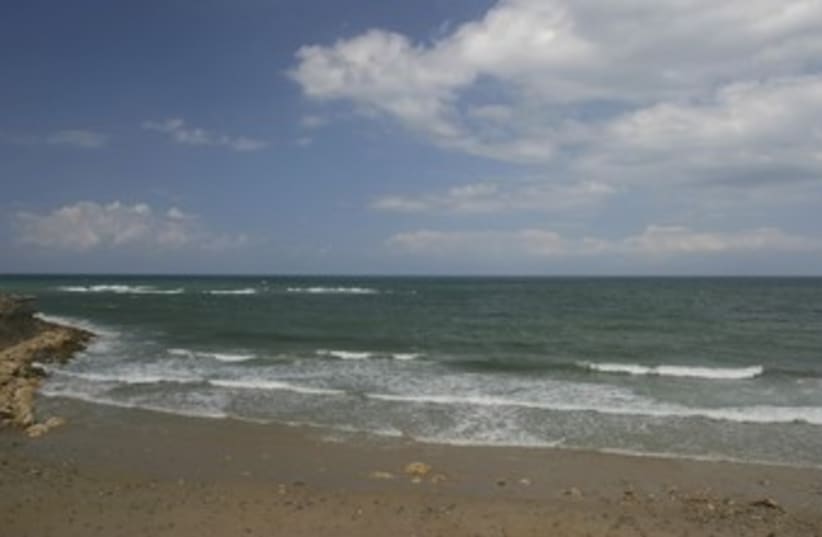The Justice Ministry unveiled the draft of a proposed bill on Tuesday that will ultimately completely restructure the legal regime and sovereignty principles governing the country’s coastal waters.
If it passes, the bill will settle a myriad of security, environmental and economic issues.From a security perspective, the bill – or amendments to it – aims to address the state’s position on conflicts with Lebanon over potential sea-based resources that straddle both countries’ coastal waters.The bill or its amendments will also eventually solidify new military rules of engagement for how aggressively the navy can preemptively defend the Tamar, Leviathan and other energy-related installations from potential but uncertain threats, and will determine how large a security perimeter the state will try to impose on foreign sea vessels traveling nearby.Although this initial draft version is heavier on details about environmental, economic and general criminal law aspects of Israel’s territorial waters – and has not as concretely resolved the security issues – the ministry felt it was important to publicize the draft now, partially in the hope of spurring the government to act on the legislation.Many ministries have been discussing the proposal behind closed doors for years, but have not made anything public or moved forward with an actual bill.Though no government official would say that outside concerns had dictated the timing of the draft’s publication, making the draft public may indirectly soften some of the harsh criticism that the government has received of late from the energy industry, including accusations that Israel’s red tape was driving away foreign investment.The draft is also the state’s first attempt to manifest concretely its commitment to the principles underlying the major UN conventions governing the sea, such as defining an Exclusive Economic Zone of 200 nautical miles, or a larger zone beyond the immediate nearby coastal waters, where Israel would exercise some – but not all – aspects of sovereignty.The bill is expected to go through numerous changes now that it is open to the public for the first time. However, just publishing a draft of the mammoth legislation – which will revisit and update a number of outdated laws passed in the 1950s – was a significant event.Environmentalists have long been voicing concern that the supervisory laws of Israel do not apply to the country’s Exclusive Economic Zone, where most gas drilling occurs.Because laws defining environmental procedure and liability do not apply to that zone, no one can legally be held accountable for damages that ensue there, according to a policy paper published in March by Dr. David Schorr, chairman of Tel Aviv University’s Law and Environment Program.Noble Energy – the largest stakeholder in the Tamar and Leviathan reservoirs – has repeatedly maintained that despite the lack of legislation in the Exclusive Economic Zone, the company adheres to all US safety protocols for drilling.Examining the new Justice Ministry proposal, Schorr particularly criticized the bill for applying neither the Clean Air Law nor the Pollutant Release and Transfer Register (PRTR) protocol that the Environmental Protection Ministry typically requires of industries.“That means that the oil platforms can pollute the air with impunity,” Schorr said.While praising the Justice Ministry’s decision to issue a bill, Adam Teva V’Din (Israel Union for Environmental Defense) cited several flaws within its text that could allow for “environmental disaster” to occur in waters that the organization describes as the “Wild West.”One of the biggest problems is that the bill does not apply planning and building laws to the Exclusive Economic Zone, the organization said. As such, there are no requirements for environmental-impact studies of drilling plans and for examinations of suitable alternatives.The bill enables “gas companies to operate without real regulation, transparency and public participation,” explained Adam Teva V’Din executive director Amit Bracha.Echoing Adam Teva V’Din’s sentiments, Schorr said he also took issue with the bill’s suggestion that the Environmental Protection Ministry have only a consultative role in the offshore construction process. The bill also does not allow for environmental provisions that the ministry usually attaches to business licenses, he explained.Another problem Schorr cited was that the environmental laws applied in this proposal were not designed for an offshore situation and therefore allowed for “plenty of loopholes.”“You need a major piece of legislation or regulation that looks at this industry as different and comes up with tailor- made legislation for this industry,” he said.On the same day that the Justice Ministry released the bill, the Energy, Water and National Infrastructures Ministry published a series of environmental guidelines for offshore petroleum drilling.As a condition for exploratory and commercial licenses, companies must submit an “environmental document,” including environmental monitoring programs and assessments, to the head of the Petroleum Commission, as well as emergency treatment plans to the Environmental Protection Ministry’s Marine and Coastal Division, the guidelines say.For commercial drilling structures in Israel’s territorial waters, companies must submit an environmental-impact statement – as the Planning and Building Law mandates – to planning authorities, which will then relay opinions to the petroleum commissioner and the Environmental Protection Ministry. For commercial structures in the Exclusive Economic Zone – where the Planning and Building Law does not apply – companies must submit the documents to the commission and the ministry, which will consult relevant bodies as needed before the commissioner grants approval, the guidelines explain.According to the ministry, the new guidelines aim “to prevent or minimize as much as possible environmental hazards that may arise during production or exploration."
State proposes legal framework for complete alteration of national policy on coastal waters
New bill aims to address state's position on conflicts with Lebanon over sea-based resources.
